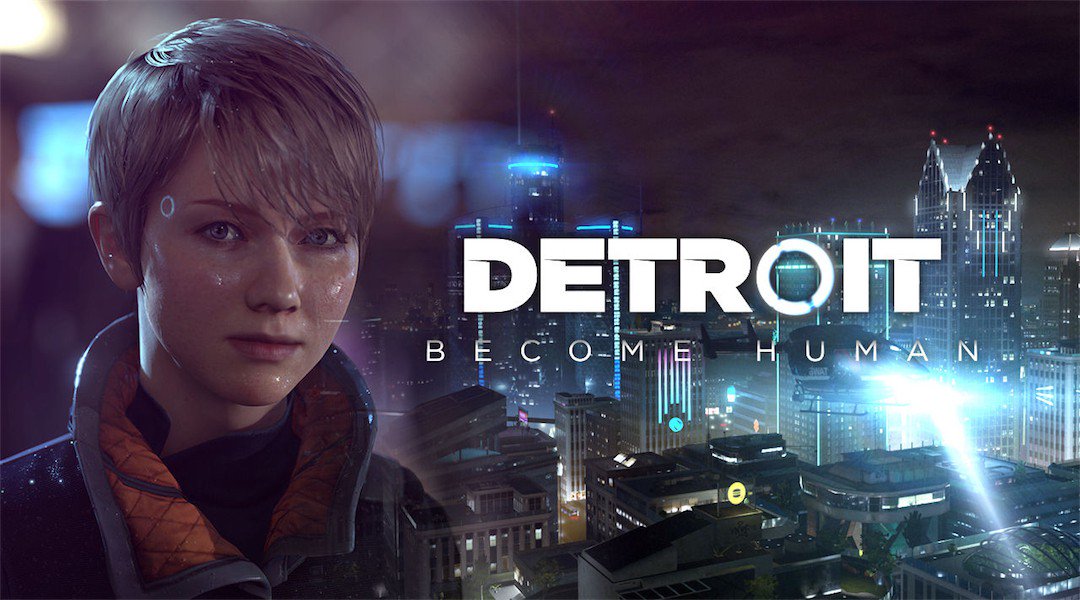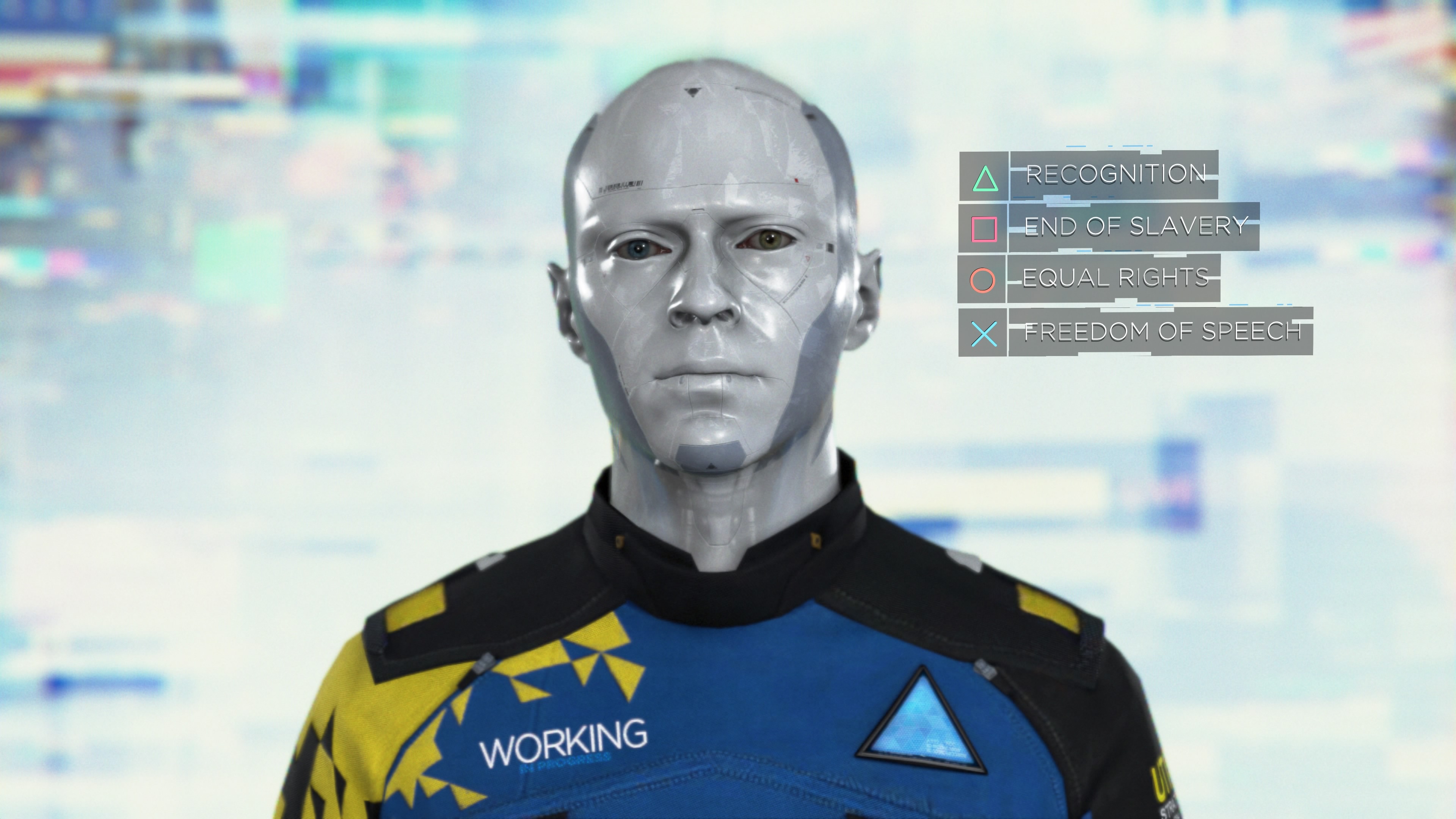What is the soul? What does it mean to be human? To be alive? Can humans give life to creations made of metal? These questions have been the central point of several anime, movies, comics, and books… It seems to be a central focus of a lot of fiction over the last few decades, centuries even. It almost seems as if these questions are ingrained in mankind, as a way for us to determine our own place in the cosmos. But what if we mostly remove the human element and focus almost primarily on the choices and emotions of our creations? That, I believe, is the fundamental question that Detroit: Become Human seeks to answer. Unfortunately, in a genre already super saturated, combined with heavy handed prose, Detroit falls severely short.
Detroit: Become Human
Publisher: Sony Interactive Entertainment
Developer: Quantic Dream
Platform: PlayStation 4
Release Date: May 25th, 2018
Players: 1 Player
Price: $59.99
This genre of game, I guess “interactive movie” would be the best descriptor, is hard to review. I write about video games, not movies or choose-your-own-adventure books, and that’s actually a fairly apt description of Detroit: Become Human. At its core, it is not a video game. It is a choose-your-own-adventure book pretending to be a movie, masquerading as a video game.
The “game” likes to tout that the player has almost complete control of the narrative, choosing how the game will play out, who dies, who lives and how the main protagonists react to different events in the game. And ultimately, this is true.
However, outside of answering questions and a few Quick Time Event fights, the “player” has very little control here. You spend most of your time viewing glorified cut scenes before being tasked with inputting a button command to determine how the character responds or in some cases, collecting evidence and clues.
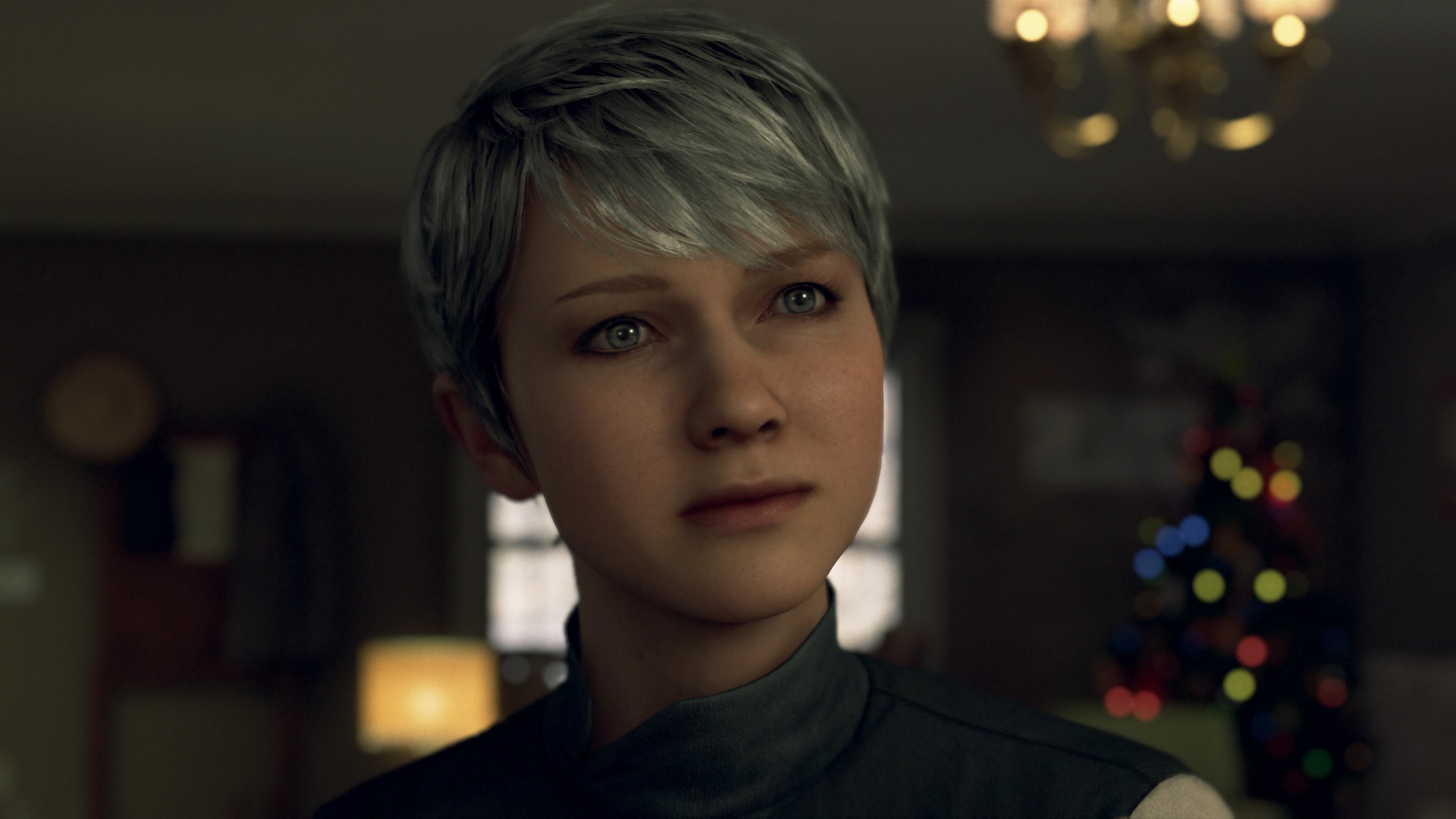
That is the extent of the gameplay found in Detroit. Move the current protagonist through the scene, make some choices (Press X for freedom, Press O for sadness) and move on. None of the choices in the game are permanent anyways.
The game tells you that you shouldn’t go through the chapters and make different choices if you don’t like what happened, but there is nothing stopping you from doing exactly that.
There were a handful of times where I wanted to take the peaceful route or spare a life and it ended up backfiring in a spectacular way. Besides which, pretty much each major decision in the game is accompanied by an achievement, so you’re going to have to see the same scenes with different choices made anyways.
Choose a path that you would like, either revolution or war, and make the choices that will get you there, even if you need to replay a chapter a couple of times to move you towards that ending. Even then, right before the last chapter, you will have a choice to go in a completely different direction if you so choose, even if you have been going down a different path till that point.
All that said, the main draw for this game is the story, which you would think would be stellar, gripping, something memorable and that brings up questions in some existential manner. Well, you’d be wrong.
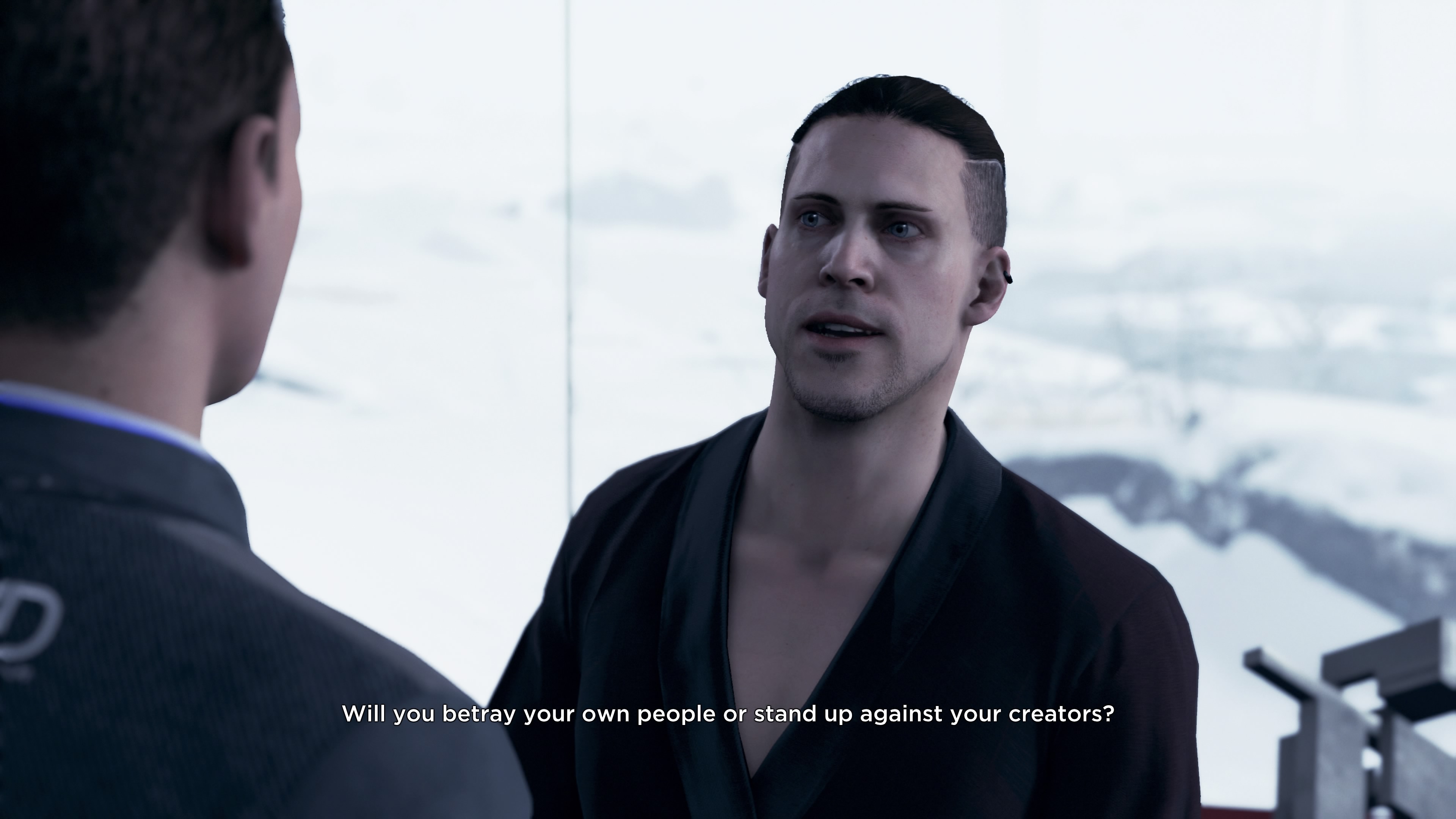
A general synopsis of the story found in Detroit: Become Human is that humanity has been able to develop semi sentient Artificial Intelligence in the form of autonomous androids that we use for literally everything, from basic household chores to medicine, construction and everything in between, including war. While the major countries of the world are experiencing unprecedented prosperity, there is also wide spread unemployment and drug use due to a majority of the populace being replaced by the androids.
For some unknown reason, Androids have begun to go rogue, developing “emotions” and becoming “Deviant”. That is where the 3 main characters come in. Each is tied directly to the deviant phenomenon. Kara and Marcus are both house droids who go through some form of conflict and become deviant while Connor is a police droid tasked with hunting down and eliminating any and all deviants.
I will forgo giving any spoilers of the story, but it is fairly obvious the different paths each of the protagonists can take just going off of their basic descriptions. Conner is a goofy advanced android expected to protect human life while arresting/destroying deviant android. Kara is a house android responsible for a little girl and a drugged out father.
Marcus is a house android responsible for an aging artist with a strong sense of personal rights. There are really no major plot twists in the narrative, no real gripping obstacles for the characters to overcome. Things just… play out with no real sense of urgency. Even though the game says that each character can die throughout the story, not once did I ever get the sense that any of them were in any real danger as you always had the choice to prevent any deaths with more than enough time to make the correct choice to continue on with all players alive.
I have a confession to make here. I’ve never played any other Quantic Dream or David Cage game, so I’m not exactly sure if Detroit is unique in the way Mr. Cage goes about story telling or if it is a fairly standard exhibition of his storytelling. But where as other stories have used nuance, metaphor or just really good storytelling and characters to make the viewer or player care and get drawn in, in Detroit: Become Human decided to use several different forms of hammer to pound the idea that these Machina are indeed alive, using several, overt references to racism and bigotry, even going so far as to draw direct and explicit references to the equal rights movement to make the point.
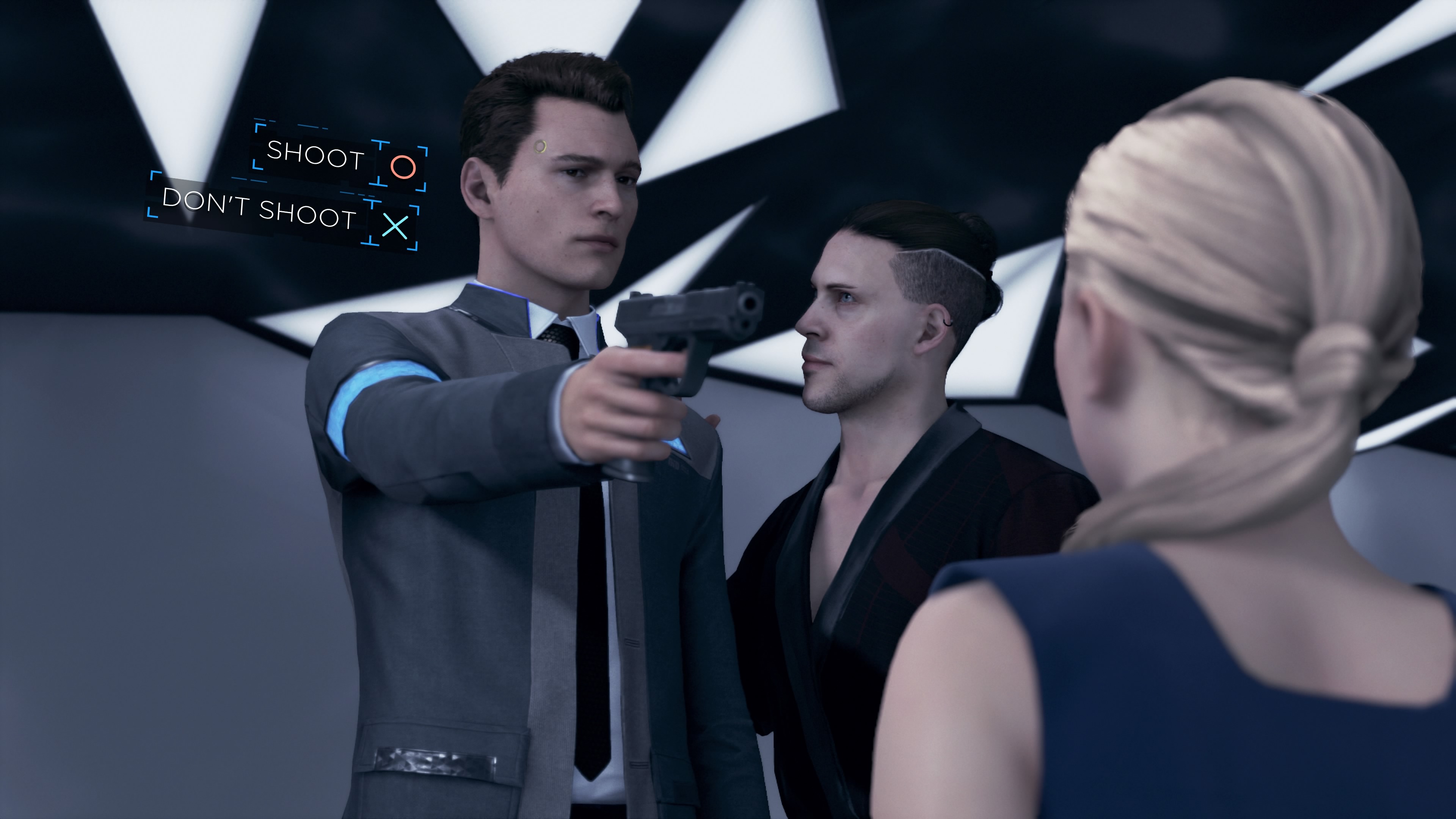
That is where, ultimately, Detroit: Become Human fails. It is not in the graphics department (the game is overall a very, very beautiful game), nor is it in its lack of gameplay, but in the fact that Quantic Dream and David Cage made the assumption that its audience is so deficient in intelligence that they would be unable to draw the obvious conclusion that the Androids, as presented, are indeed alive and experience true, honest emotions. Most human characters, sans a few, are presented as just racist, bigoted caricatures of the worst that humans can present.
There honestly isn’t much else to say about Detroit: Become Human. It’s a 15 hour movie presented as a game with none of the fun or enjoyment that normally comes when playing a visual novel or even other games in the same genre like any of the TellTale games. While the characters have the bare minimum worth of depth, the story does nothing that previous media hasn’t done already and has done better.
I will say that I was slightly invested in Kara’s story throughout most of the game, as she was the one that ever really showed anything even coming close to something believable as a character. I did everything I could to make sure that she achieved her goal. But with Marcus and Conner? You didn’t really have to do anything to make sure that the path you wanted happened as you wanted.
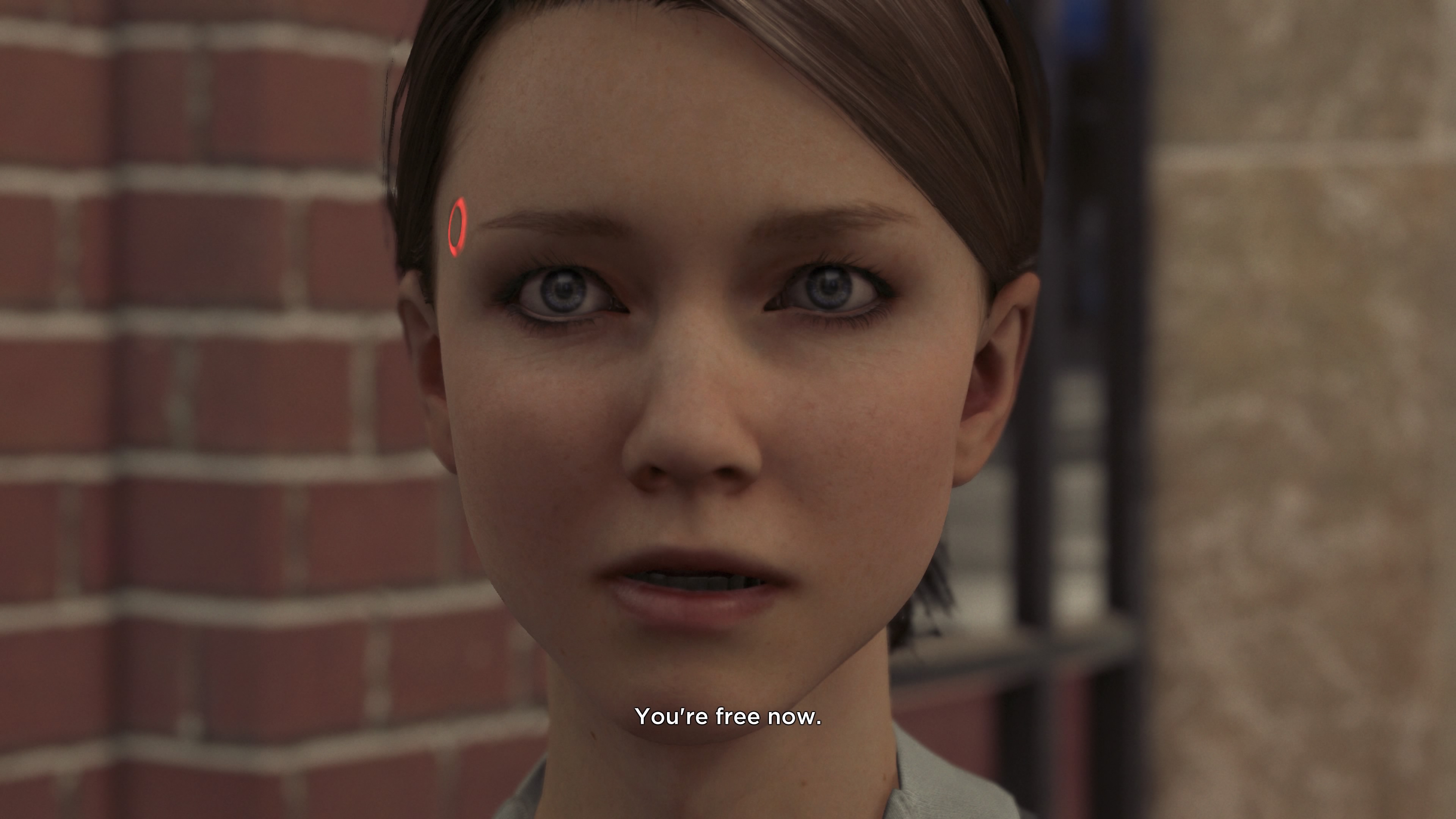
The bottom line? At 60 dollars, for 15 hours of watching a glorified movie, you’re better off waiting for a massive price drop. If you absolutely must pick it up now, then don’t expect much in the way of anything new or innovative outside of really spectacular graphics.
Coming from this, said visuals should be expected since the engine doesn’t have to do anything outside of rendering scenes, such as actual combat or anything coming close to fun. If Detroit: Become Human were an anime or an actual movie, it would be panned as painfully average and uninspired.
You may now press X to end the review.
Detroit: Become Human was reviewed on PlayStation 4 using a review copy purchased by Niche Gamer. You can find additional information about Niche Gamer’s review/ethics policy here.
The Verdict: 5
The Good
- Exceptional graphics and attention to detail
- Moderate replayability if the player wants to see the different paths/conversation choices
- There’s a robotic Polar Bear for no reason, and he’s pretty damn cool
The Bad
- A predictable storyline in a genre oversaturated with similar themes
- Mostly uninteresting characters that don’t engage with the player
- Heavy handed themes that insult the player’s intelligence
- Press face button for emotion
